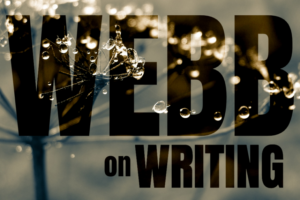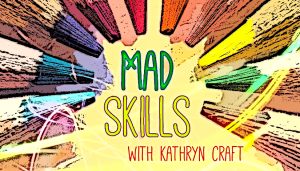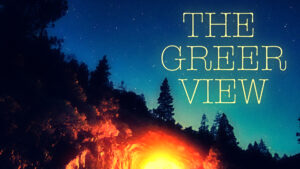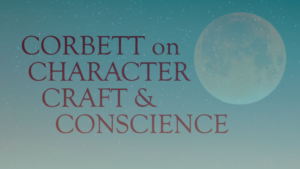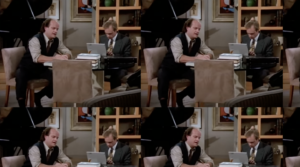Inspirations
I must admit, I have history on the brain these days. It should come as no surprise that as a historical fiction writer, I subscribe to the idea that history is always relevant. Understanding what has passed is the answer to our whys and hows, and becomes the building blocks of the future. While reading (and writing) historical fiction, I’m searching for aspects not always present in other genres of fiction, that are, in fact, the hisfic genre’s strengths. Things like:
Today, history is being made around us, for better or worse, and as writers, it’s nearly impossible not to consider how that affects our ways of life as well as our thinking. To many of us, we’re watching in horror as history’s dark past becomes the present once again. It seems we are doomed to repeat history as is so often said, because the human memory is short, and frankly, I don’t know many teenagers—or many adults—who have learned from someone else’s mistakes. Mostly we learn from our own. So here we are, in the midst of a great conflict.
Lately, common words in our everyday vocabulary are:
protest, resist, contradict, agitate, depose – all examples of CONFLICT
Another way to view conflict J. Turnbull of Oregon State University shares with eloquence: conflict really means “thwarted, endangered, or opposing desire.” These are fundamental words to those who wish to protect democracy, protect rights, protect others, but they’re also fundamental words in our writing lives. Conflict in all its forms are essential to a character’s journey and development, and ultimately, to the outcome of their fate.
There are many ways to sew conflict into a story, both externally and internally. A combination of both makes for a stronger narrative in general, though some character-driven stories are quite successful with the majority of the conflict being internal as well. We probably know a lot about conflict already, but I find after years and years of writing, it’s still easy enough to lose my way. Fiction writing is complex and each new story brings its own set of challenges. To help keep me on […]
Read MoreIt’s easy to be insecure as a writer. Or it’s hard not to be. At our worst, we compare ourselves constantly to others, feeling like we should be more successful, or more prolific, or more adventurous, or any one of a hundred mores.
In conversations with writer friends, one wish I hear over and over is the wish to write faster. To go more quickly from the idea of the book to an actual, put-it-in-the-reader’s hands book.
I’ve long been an advocate of writing a sloppy first draft, getting words on the page as fast as possible so that you can move into the next stage of fixing those words and making them better. But that isn’t for everyone, and I thought I’d present a counterpoint to my recent piece on how to set a daily word count to improve your writing speed.
Focusing on word count exclusively as a measure of progress while you’re drafting can definitely have its downsides. Here are three:
It can encourage the wrong kind of progress. Particularly if you don’t plan out your book beforehand–or if, like me, you always outline the book but then always diverge from the outline–the danger of taking a wrong turn part way through the draft and then feeling like you can’t turn back is pretty dire. Progress in the wrong direction isn’t progress at all.
It can discourage other–just as useful–kinds of progress. You reward what you measure, right? And if you’re fixated on increasing your word count, there’s a very good chance that you’re not doing the other things necessary to improve your book. Which might be fine if you’ve done a ton of research in advance and you’ve built enough time into your schedule to do a deep dive on editing later, but some people just don’t work that way, and it can be a real struggle to want to edit and have to tell yourself “Not today.”
It can backfire, bringing progress to a halt. Some people just don’t benefit from goal-setting, especially an inflexible goal like a specific number of words you “must” write in an hour, day, or week. If you’re the kind of person who implodes when you don’t hit a mark you’ve set for yourself, you definitely want to stay away from the hard-and-fast word count goals I posted about last month. It can be all too easy to miss the word count one day, then the next, then tell yourself you might as well give up completely. Sometimes it’s just better not to put yourself in that position.
That isn’t to say that word count doesn’t have its place. But its place may not be in your life, and even if you’re an avid fast-drafter like me, you have to know when to set aside the numbers and focus on the words themselves.
Q: Have you had times that trying to hit word count goals didn’t work for you? What did you focus on instead?
Read MoreA few months back, I bought, at the recommendation of The New York Times’s Wirecutter newsletter, a bottle of snail slime. But it wasn’t just snail slime. It was a Korean treat called CosRX Advanced Snail 96 Mucin Power Essence, that, according to the terrific test teams at Wirecutter, had made the list of Best Korean Skin Care Products.
I swore, years ago, that I would never do Botox or have “work” done. But there was a problem: I was getting older literally every day, and with each passing day, my forehead wrinkles were looking like furrowed rows in dry, fallow fields. I needed help. I needed magic.
Because I had never once seen a K-Pop star with a wrinkly forehead, I thought that perhaps this product would–Shazam!–smooth out my forehead situation. My friends would grab my arm, begging me to share my secret. My middle school students would confuse me with the adorable, sunshine-filled music teacher who could not be a day over 26. My husband would receive high fives from his middle age bretheren who wished their partners were as smooth-foreheaded as I.
When the CosRX Advanced Snail 96 Mucin Power Essence arrived in the mail, I tore open the box and removed the elegant packaging. The text on the frosted glass bottle impressed and delighted me: Being 96% Snail Secretion Filtrate (Mucin), this essence helps the skin to lose less moist while keeping the skin smooth and healthy.
Lose less moist? Sign me UP. With my very sensitive, very dry 53-year-old skin, I am all about holding onto as much moist as possible.
My college-age children however, as well as my husband, were uncomfortable that I would put any kind of snail mucin–Advanced or merely Average–on my face. But I knew the power of mollusk mucin, its ability to create a barrier between skin and environmental danger. I knew it most certainly blocked moist-loss.
I knew this because in 6th grade, my teacher, Mrs. Gillfillan, took our class to the foothills of Somewhere, California, where my classmates and I slept in cabins, where we hiked forested trails softened by layers of lichen and pine needles, and where my entire class and I stood in line to become members of the Sleepy Hollow Elementary Lick-a-Banana-Slug Club.
It was 1982, i.e. teachers allowed 28 students to line up and lick a single banana slug. Life was germy.
By the time it was my turn, 27 of my classmates’ tongues had already grazed the slug’s overripe banana’d personage, and the slug was relying on its best (and only) defense: its V-8 turbo-charged emergency slime boosters. In other words, instead of me leaving my saliva on its back, it left its (definitely Advanced) mucin on my tongue. The licker had become the lickee.
For at least 36 hours post lick, my tongue experienced an inescapable slick of slime as well as a sharp tingling sensation. I felt something that I now […]
Read More
Books have been getting a lot of bad press lately. According to Penn America’s website, pen.org, more than 16,000 book bans have been implemented in U.S. public schools since 2021, 4,000 of which occurred in the 2023-2024 school year alone—more than at any other time since the McCarthy era of the 1950s. Public libraries have been under assault as well, with many people questioning their relevance and even advocating for their closure.
Estimates vary as to when books as we know them were first produced, but for the majority of time since the middle of the 15th century, when the invention of the printing press made them available to common people, books were considered precious objects by those who owned them.
The idea that books were treasures held true well into the 20th century, a fact I was reminded of recently when I pulled a few antique volumes off of a shelf in my living room. These clothbound gems, a couple of which were published in the mid-1800s, are marvels to behold.
The first in a two-volume set, Ruins of Ancient Cities by Charles Bucke, published in 1848 by Harper & Brothers of New York, features a detailed etching of ancient Athens across from its title page. The indentations made by the printing press on the book’s pages can still be seen if you look at its elegant serif typeset at just the right angle, a reminder that someone painstakingly set the type for all 360 pages by hand, a feat of craftsmanship few people living today could accomplish without error.
Perhaps even more impressive is Everyman’s Library: A Short Biographical Dictionary of English Literature by John W. Cousin. Published by E.P. Dutton & Co. of New York in 1910, the book’s endpapers feature a gorgeous, scrolling Edwardian design complete with a rendering of the Roman goddess Flora who symbolizes abundance. The publisher’s advertisement for the rest of the Everyman series at the beginning of the book is just as lovely, its type arranged to resemble a stylized tulip.
In my mind’s eye, I can picture the families who once owned these books, sitting in their living rooms, reading passages to one another aloud. Back when these hardcovers were published, reading often felt like an adventure. These books were prized possessions, not just because of their content, but because they were well made, beautiful to look at, and expensive to buy. Books like these said something about the people on whose shelves they were stored.
With their flimsy cover stock and recycled paper pages, modern-day print books, by contrast, often feel disposable. And although they are convenient to buy and read, and better for the environment, electronic books are like ghosts even in comparison to these, gone at the touch of a button.
Of course, the format of modern books makes them affordable and widely available to large numbers of readers. And the myriad types of other media readily accessible online makes it unlikely that books will ever regain the status they once enjoyed on a large scale.
Not unlike the American Arts and Crafts movement of the late 19th and early 20th centuries—a […]
Read Morephoto adapted / Horia Varlan
After a string of heavy reads last fall, I wanted to get swept away in some pure entertainment. I figured the light pink, flowery cover of the 2016 mega-seller by a romance author I hadn’t yet read would fit the bill.
Colleen Hoover’s It Ends with Us did not deliver on the promise of its cover. While the opening did offer a familiar boy-meets-girl moment, I was denied the escapism I sought when the plot evolved toward domestic abuse. Despite the genre switch-up, Hoover did deliver a story that “powerfully illustrates the devastation of abuse—and the strength of the survivors,” as its starred Kirkus review claimed.
This critical three-star Amazon review, though, from reader KieraAnne, speaks to the point of this post:
It didn’t really happen like you’d think. There weren’t TONS of red flags she was ignoring (although there were several), so the first time, it really caught you off guard. It was so much later in the story than I expected that, as a reader, I had grown complacent, so it was shocking when it happened, just as it was to Lily. It was easy to see why someone would explain it away and move forward with the relationship.
KieraAnne knew what to expect then forgot to be looking for it; I expected one thing and got another. These results interest me since misguided assumptions about the nature of a novel can often result in a negative review—and yet to date, this novel has an average of 4.7 stars on Amazon with more than 390,000 ratings. How did Hoover pull this off?
She began on page one.
A reader will seek immediate genre clues for reassurance that this will be the kind of book they like. These clues are often subtle, but their cumulative effect establishes a psychological through line that will help the reader keep wheels on the road when negotiating the unexpected turn ahead.
Let’s look at ten of the ways Hoover forewarned her readers, right in the first chapter, of the darkness to come.
1
She worked the word “suicide” into her opening sentence.
As I sit here with one foot on either side of the ledge, looking down from twelve stories above the streets of Boston, I can’t help but think about suicide.
To instill faith in her female protagonist, Hoover quickly assures us that her character likes her life just fine—she’s thinking about the potentially bad decisions other people make while seeking fresh air and silence on a rooftop. Suicide won’t even be a plot point—but an unsettling seed has been planted.
2
We learn that this woman couldn’t think of anything nice to say about her father while eulogizing him earlier that day. Hmm. Why? By allowing her reader to sit with this question, Hoover colors the interaction to come.
3
Then the protagonist lays some emotional track that, in retrospect, will feel loaded. “I didn’t account for how cold it would be up here, though. It’s not unbearable, but it’s not comfortable, either.” Then in the next paragraph: “I love it when the sky makes me feel insignificant.”
4
The romantic lead makes this memorable entrance: “But unfortunately for me, the […]
Read More
These are challenging times. There’s the political and societal crisis that is rolling out second by second before our collectively horrified eyes. I live in Australia, which is geographically distant from the USA, but I’m well aware that this ripples (or gushes?) out to affect the whole of the globe, my part of it included. Alongside that, war, death and destruction continue around the world. Racism, hatred and division play out on the streets, even here. And let’s not forget climate change, which is well and truly with us now, underlining the failure of many world leaders to take timely and decisive action. Humankind: we are our own worst enemies, and sadly it would appear that we are intent on destroying, not only ourselves, but this beautiful world and all its living things along with us.
That was not the most positive way to start a post about writing. But even as those horrifying developments unfold, I hear voices speaking out in hope. I see poems and essays and opinion pieces of remarkable wisdom, perception and courage. As a writer, you have the powerful tool of your voice. Note my choice of the word tool rather than weapon – I prefer not to cast this as a fight. But it is a battle of sorts, requiring bravery, stamina and skill. Words can indeed be powerful weapons for good or evil.
I’m writing this in company with fellow authors, sharing a table in a public library – we have become good at blocking out the exuberant voices of preschool children attending the regular story hour. In fact, their enjoyment of the bright and welcoming library and of storytelling gives us heart. As for our Write Club meetings, they are of immense value – it’s amazing how heartening it can be simply to work in silence alongside one’s peers. Today I intended to get on with the final chapters of my current work in progress, the sequel to my soon-to-be-released adult fantasy novel, The Amber Owl. But those world events continued to whirl around in my brain, a far greater distraction than the laughter of children. Earlier, I had been wondering how I could summon my usual words of hope for this post, with the world seemingly headed for hell in a handbasket at remarkable speed.
Then, last night, something clicked into place. It was the first rehearsal of the year for our small local choir, after a long break over the summer school holidays. I do love to sing; in the past, music was a major part of my professional life. And we’d been sent some exciting new pieces to learn, so I anticipated an enjoyable evening. What I didn’t expect was a strong reminder of how good singing is for us, both physically and mentally – a real workout for body and mind. I came home tired, but feeling positive, hopeful, thinking of beauty and peace and how important it is to speak up on behalf of what we believe in. What were we singing to inspire this? In particular, a setting of the beautiful Leonora Speyer poem, Measure Me, Sky, by composer Victor C Johnson. You can find it on YouTube, along with at least two other choral […]
Read MoreAmong the many powerful things I’ve read recently, the one that struck deepest as a writer of fiction came from Robert Stone’s piece in Paths of Resistance: The Art and Craft of the Political Novel. The piece was titled “We Are Not Excused,” and the section in question was this:
The practice of fiction is an act against loneliness, an appeal to community, a bet on the possibility that the enormous gulf that separates one human being from another can be bridged. It has a responsibility to understand and to illustrate the varieties of the human condition in order that consciousness may be enlarged.
The writer who betrays his calling is the one who, for commercial or political reasons, vulgarizes his own perception and imagination and his rendering of them … The reassurance [such writing] offers is superficial: in the end it makes life appear circumscribed. It makes reality appear limited and bound by convention, and as a result it increases each person’s loneliness and isolation. When the content of fiction is limited to one definition of acceptability, people are abandoned to the beating of their own hearts, to imagine that things which wound them, drive them and inspire them may be a kind of aberration particular to themselves.
Stone’s remarks reminded me of something Simone de Beauvoir wrote in a review of Violette LeDuc’s memoir, La Bâtarde:
She who writes from the depths of her loneliness speaks to us of ourselves.
Finally, I was also reminded of the philosopher Richard Rorty’s concept of ironism, which can be described as “fashioning the best possible self through continual redescription,” an effort that requires us to reach beyond our own experience to learn from the experiences of others—in no small part from reading and writing. This is how we create solidarity:
Solidarity is brought about by gradual and contingent expansions of the scope of “we;” it is created through the hard work of training our sympathies … We train our sympathies … by exposing ourselves to forms of suffering we had previously overlooked … to sensitize [ourselves] to the suffering of others, and refine, deepen and expand our ability to identify with others, to think of others as like ourselves in morally relevant ways. The liberal ironist, in particular, sees “enlarging our acquaintance” as the only way to assuage the doubts she has about herself and her culture.
The task of achieving solidarity is … divided up between agents of love (or guardians of diversity) and agents of justice (or guardians of universality).
I doubt I’m alone in taking heart from thinking of “guardians of diversity” as “agents of love,” though it is also disturbingly clear that this is a view currently under strenuous attack.
My point here, however, given that it’s Valentine’s Day, is to broaden our understanding of love as it pertains to the stories we write, and why we write them.
I imagine it seems somewhat counterintuitive to think of fiction that conforms to convention as enhancing a sense of loneliness or isolation. The whole point of writing in a conventional manner is to be popular, to gain as wide an audience as possible. Stone’s point is that this is an act of bad faith, […]
Read MoreThe other day, while sharing pages with my critique group, I had a scene where a character finds a camera loaded with film in her dead friend’s apartment. The response from my crit partners: “Oooh, I can’t wait to find out what’s on there when she gets it developed.” My response? “Yeah, me too!” I’m only about 15,000 words in and who knows what happens next—I certainly don’t.
Clearly, I’m not a plotter. There’s a lot of talk about writers being either pantsers (writing by the seat of your pants) or plotters (scenes are laid out with white boards, index cards, or plotting programs before a single word is written). But I came across a term the other day that I prefer. I’m a “discovery writer.” Maybe you’re already familiar with the term, but it was new to me, and I felt truly seen.
After deciding to write this essay, I attended the Texas Book Festival in Austin, TX, where I live, and I had the pleasure of listening to Jean Hanff Korelitz, author of The Plot and The Sequel among others. When she was asked about her writing process, she said she doesn’t plot or outline. She discovers as she’s writing. I wanted to run up to the stage, give her a high five, and hug her.
I never liked outlining, even as a kid in school. All those Roman numerals, numbers, capital letters, lower case letters made my head spin, leaving me confused and frustrated. Not much has changed. When I write, I have an idea of how I want the story to start and how I want it to end, but that’s pretty much it. The rest I “discover” as I write. I’m the first to admit that it’s the least efficient method of storytelling. Sometimes I “discover” when I go back and reread what I’ve written, that I’ve taken the story in the wrong direction. It doesn’t jibe with what came before. So, time and effort and brain drain are involved in getting things back on track. Some might say that’s the masochistic method of writing. Maybe they’re right. But it’s out of my control.
I tried to be a plotter. I really did, or at the very least, a “plantser,” where I outline at least some of the scenes in my story. I bought index cards, a corkboard, and push pins. When that didn’t get me where I wanted to go, I bought a white board and markers. When that failed to produce a well thought out story, I tried the inside outline that so many writers and editors point to as the key to success. I think I’m allergic. My brain literally rebels and I feel like I’m breaking out in hives when I’m asked to look behind the curtain when I’m not even sure what play I’m watching. I’ve read Lisa Cron’s “Wired for Story,” Blake Snyder’s “Save the Cat,” and Donald Maass’ “Writing the Breakout Novel.” I’ve watched countless videos and attended virtual workshops. Nothing works. I’m that square peg trying to force myself into a round hole. It’s never going to fit, no matter how hard I try. And no matter how much other writers and editors proselytize the virtues of outlining and try to bring […]
Read More
In 2020, I started writing my second novel, Antoinette’s Sister, just two weeks before the lockdown began. While everyone else was baking bread or picking up new hobbies, I was locked away in the very room where I’m writing this now. Admittedly, disconnecting from the outside world was physically much easier back then than it is now, but the same principle still holds true: put the writing first.
And though we are no longer in lockdown, the world feels like it’s in another tailspin—whether it’s the news, social media, phone calls, or people telling us we need to be somewhere or do something (I know I have a slew of unanswered emails and a basket of laundry waiting to be folded). Disassociating from the outside world can be harder than it seems. So below are some of my tips to help you block out distractions and focus on your writing:
DON’T BE ASHAMED TO PUT YOUR WRITING FIRST
Go ahead and read that sentence a few more times. I’ll wait. Ready? Alright. Ask yourself if a professional, any professional, would put off their work hours. Or if they would respond to every non-work-related phone call/text/email. What are their office hours?
Whether or not you’re published yet, you are a writer. Writing is not just an art form—it’s also a business, and it matters to you. Treat it that way. Don’t expect the world to make room for your writing, because it won’t. Whether it’s early in the morning, late at night, or while the kids are at school, find a time that works for you and guard it like a dog with a new bone. Anything that can wait until you’ve met your daily writing goal can wait.
HAVE A PHYSICAL SPACE
In Stephen Kings memoir, On Writing: A Memoir on Craft, he mentions that he likes to place his desk at the center of his room. But not having a dedicated writing space doesn’t have to be a deterrent—after all, Agatha Christie wrote at her dining room table in between homemaking duties. Physical memory helps train the mind to recognize when it’s time to write. Which leads us to…
MENTAL SPACE IS JUST AS IMPORTANT AS PHYSICAL SPACE
There was a reason why I locked myself in my office. It was the one place I could go where I wouldn’t be distracted by the tv or even social media. I would place my phone on the other side of the room in my little “nest” where I wouldn’t be distracted by any of the above temptations.
Social media is the biggest time-killer, especially when it comes to the precious few hours that you have to write. Don’t be afraid to do a media cleanse. I promise you those internet “hot takes” will recycle themselves so you can pick them up on the next round. Or as one of my friends does, download an app like Opal that blocks your social media apps so that you can focus on what you need to focus on. Even if you have to lock your phone in a cabinet, do so. If it doesn’t serve your writing, it doesn’t serve you.
DEVELOP A PRE-WRITING ROUTINE
Joan Didion would review her work in the evening before dinner, then in the morning she would “retrace” her […]
Read MoreAs the years go by, the average age of debut authors seems to get younger and younger. There’s plenty of reasons why this is great: the YA genre embracing authors who are the ages of their characters, the removal of societal assumptions that younger people can’t contribute to art in a meaningful way, the increase in opportunities for younger writers to access helpful resources, etc.
Conversation about this reality would stop there if two things didn’t start to emerge from this trend: 1) the publishing industry skewing notably toward younger writers to the point of sometimes completely shutting out older writers (meaning older than—gasp—30, 35 tops) for consideration for agent representation, publication, awards, or reviews, and 2) the assumption that the younger a writer publishes, the more “naturally gifted” of a writer they must be, and therefore a better writer than those who debut older.
I’ve taught plenty of creative writing courses, and nearly all my older students have expressed an identical concern: That because they’re older, they’ll be largely ignored by the industry both pre- and post-offer. Worries about age have even hit some of my younger students. On their end, they’ve been fed the assumption that since younger equals better, they must land a book deal right out of the gate. If they don’t, they’re failures, will soon be “too old” to publish in a way deemed meaningful, and they should just give up if their path to publication isn’t a breeze from beginning to end.
That’s just not how any of this works. As someone who’s publishing his debut, The Lilac People, at an apparently older age—To paraphrase a petulant Frasier Crane: I’m not yet “of a certain age,” I’m smack dab in the middle of “not a kid anymore.”—and spent over a decade collecting rejections from various projects, I want to set the record straight about the benefits of publishing older.
Read MoreI’ve started and stopped this essay a half dozen times. I’ve despaired. About so many things. The world. The country. Humanity. My loved ones. And down at the bottom of the list, my ability to ever write a coherent and moving sentence again. Besides, even if I could, what would it matter? It won’t change what’s done, won’t set the world right, probably won’t change a single mind or heart.
We were hit with a snowstorm where I live this week, and when it was over I went out in freezing temperatures and stomped around on snowshoes for a few hours, battling the cold and the ice and the way my left snowshoe always comes undone at the most inconvenient time, and when I’d finished, and I had no feeling left in my fingers and toes, I thought to myself Why did I do that? It was pointless and hard and didn’t change anything. What a waste of time. But then I thought some more. About the way my cheeks were glowing, how it had felt to not see another person for all that time, only trees and a swathe of unbroken white, the way my muscles were pleasantly tired and I thought I might be able to sleep later. And I realized
I did it because it brought me joy.
And sometimes, that is enough. It’s not everything, but it’s enough.
Later that night I dug out an old notebook and wrote down everything I remembered about the hike. The red berries against the white snow. The brightly painted birdhouse with its door propped open to keep the mice from sheltering there. The coyote tracks, large and in a straight line, heading to the part of the stream that wasn’t frozen. I captured it all, word by careful word.
Those words, like the hike, didn’t change anything either. But they brought me joy as well, and rereading them here, I can feel my heartbeat slow a bit. I can smell the crisp, fresh air and see the dark trees swaying in the wind at the edge of the field. Maybe you can too.
Maybe it brings you joy.
Maybe it doesn’t always have to be our best work. Maybe, as writers, it just has to be enough.
Now it’s your turn. How is your writing going these days? Where are you finding joy?
Read More
“What is a poem?” The Poet asks. I strain to hear her soft voice over the rain pelting the conservatory’s glass roof. “How do prose and poetry differ?”
“There is more room for the reader in a poem,” I offer. “Prose fills the silences. Poetry lets the reader sit still within them.”
The Poet reads Eavan Boland’s Quarantine aloud and I sob, flayed open at the image of a husband and wife dying of hunger during the Great Famine, the man holding his wife’s bare feet against his chest to warm and comfort her as she breathes her last.
The Poet’s mellifluous voice takes me inside W.S. Merwin’s Thanks and I see what it is to weave bitter irony and anger into banal expressions of gratitude.
The Poet asks us to write poems of our own. “The real things of the world are the entry point to the imagination,” she says. “Keep your writing grounded by writing from a real place.”
~
I have come to this writers’ retreat center in Southwest Ireland to spend two weeks working in concentrated solitude. I’ll review the galley of my debut novel, just a few months out from launch: it’s my last chance to make any (minor) changes. I will also hike the hills and explore the villages that are the setting of my second novel, very newly under contract. Thirteen years have passed since my last visit to the Beara Peninsula, a remote and wild tongue of land that juts into the frigid Atlantic. I want to make certain I depict its landscapes just right. I work steadily on my galley from early in the morning until lunchtime, hit the trails that crisscross the hills between the villages of Eyries and Allihies in the afternoons, and in the evenings I write. If there is heaven on earth, this is it for me.
Then, just as I’m closing out the first week, the earth shifts. In a stunning turn of serendipity, the Beara’s own celebrated poet, Leanne O’Sullivan, arrives to lead a weeklong poetry workshop. It was Leanne’s poetry collections An Cailleach Beara and The Mining Road that inspired the themes and plotlines of my “Irish” novel, The Crows of Beara. After a breathless (me) conversation with the residency coordinator, a place is made for me as eight other writers arrive.
~
I am not a poet. As a writer of prose, I know the value of rhythm and form, of the carefully chosen word, the breath taken, the meaning conferred in a phrase or in the spaces in-between. But to actually write my own poems? I am rattled. How do I begin? What is my way into a poem?
Each day I search for something vital and tangible to ground me in my words. Here I am in this land of legends, where inspiration seeps from slabs of stone sculpted by Bronze Age hands—now scratching posts for the russet and inky-black flanks of Angus and Friesian. Yet I arrive each morning without a poem. I am anxious. Mortified. I wonder what I’m doing here amidst true poets, who bring work to share, prepared to critique and be critiqued.
I hear Leanne saying, “Poetry is the place where […]
Read Morephoto adapted / Horia Varlan
The challenge for a novel’s first line is to begin orienting the reader to the story while also raising a question that inspires them to read the next line. Adding quotation marks around that sentence shines an additional spotlight that signals the reader to pay attention—”This will be important.”
That’s a lot of pressure to put on a sentence.
From the manuscripts I see in development, I suspect more writers try dialogue openings than can actually pull them off. While perusing my stacks for published examples, I set aside those that quoted only one word or name that could easily have been left off. One opened with an unremarkable question: “How was school?” (The reply: “Good.” Can you name this novel? I thought not.) In the end, only the following few dialogue openings—representing only 3% of the novels on my shelves—rose to the level of “mad skills.” Let’s see what they have to offer us.
Charlotte’s Web by E.B. White (1952)
Since I suspect middle-grade novels make use of this technique more often, I’ll start with one of the most iconic dialogue openings of all time. If you read this one when you were young, or read it aloud to your children, I’d bet you still remember its opening.
“Where’s Papa going with that ax?” said Fern to her mother as they were setting the table for breakfast.
“Out to the hoghouse,” said Mrs. Arable. “Some pigs were born last night.”
“I don’t see why he needs an ax,” said Fern, who was only eight.
While the dialogue continues a bit further, these few lines meet the demands of the opening: we are oriented to the setting and a question has been raised about a quickly devolving situation. Bonuses: stakes are suggested (the loss of a piglet’s life and a girl’s innocence), the reader is allowed to “see” more than young Fern does, and—at least among those who aren’t pig farmers—the reader is quickly infused with a sense of dread.
Ender’s Game by Orson Scott Card (1985)
The dialogue opening to this middle-grade novel sits beneath the Chapter One title, “Third.”
“I’ve watched through his eyes, I’ve listened through his ears, and I tell you he’s the one. Or at least as close as we’re going to get.”
“That’s what you said about the brother.”
“The brother tested out impossible. For other reasons. Nothing to do with his ability.”
“Same with the sister. And there are doubts about him. He’s too malleable. Too willing to submerge himself in someone else’s will.”
“Not if the other person is his enemy.”
“So what do we do? Surround him with enemies all the time?”
“If we have to.”
“I thought you said you liked this kid.”
“If the buggers get him, they’ll make me look like his favorite uncle.”
“All right. We’re saving the world after all. Take him.”
This is audacious, right? Floating voices, no named characters we can later recognize, no orientation as to where and when we are—and yet we recognize these remarks as coming from a jury of elders discussing a […]
Read More
